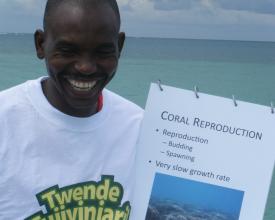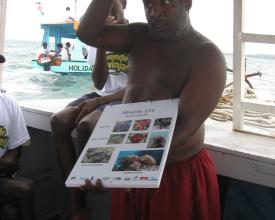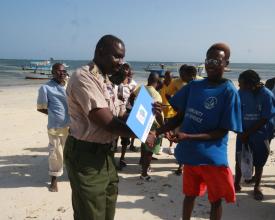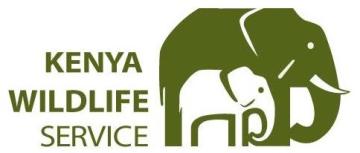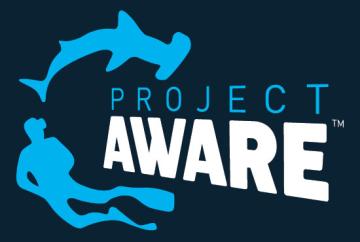L'utilisation de l'interprétation pour influencer le comportement des plongeurs en apnée
Solution complète
Tout au long des trois jours de l'atelier d'interprétation, la discussion a été utilisée comme un outil permettant d'impliquer les participants et d'encourager les contributions de tous. L'un de ces groupes de discussion a donné naissance au code de co...
Sander den Haring
Cette solution s'attaque aux impacts et à l'insatisfaction des plongeurs en apnée dans le parc et la réserve marins de Mombasa (MMPR). L'Université James Cook (JCU) et CORDIO ont dispensé une formation d'interprétation à l'industrie de la plongée en apnée afin d'encourager les comportements écologiques des plongeurs, d'améliorer l'expérience des visiteurs et de renforcer la durabilité. L'un des principaux résultats a été la création d'un code de conduite élaboré par les membres de l'industrie de la plongée en apnée. Les résultats ont été une augmentation des comportements de plongée en apnée favorables à l'environnement et une amélioration de l'expérience des visiteurs.
Dernière modification 28 Mar 2019
4520 Vues
Contexte
Défis à relever
Le contact avec le substrat du récif, l'alimentation des poissons et l'envasement sont autant de facteurs qui influencent la pratique de la plongée avec tuba. Lors des excursions de plongée avec tuba, il n'y a pas d'échange d'informations, les guides sont peu nombreux et l'équipement utilisé est médiocre, ce qui suscite l'insatisfaction des plongeurs. La recherche a montré que les plongeurs avec tuba veulent en savoir plus sur les coraux, les poissons et le parc marin qu'ils visitent.
Emplacement
Parc et réserve marins de Mombasa (MMPR), Mombasa, Kenya
Afrique de l'Est et du Sud
Traiter
Résumé du processus
La solution que nous avons appliquée dans le parc marin et la réserve de Mombasa a été créée en réponse à l'impact des plongeurs en apnée. Les recherches ont montré que les plongeurs avec tuba créaient de nombreux contacts intentionnels avec le substrat vivant pendant qu'ils pratiquaient la plongée avec tuba. Afin de déterminer les raisons pour lesquelles les plongeurs avec tuba établissaient ces contacts intentionnels, les croyances dominantes de ce comportement spécifique ont été identifiées. Ces croyances saillantes sont celles qui déterminent véritablement le comportement à influencer (dans ce cas, toucher le récif corallien). Un atelier d'interprétation a ensuite été organisé à l'intention des opérateurs de plongée avec tuba afin de leur présenter le concept d'interprétation, la manière dont il peut profiter à leur clientèle et de leur donner l'occasion de fournir des efforts d'interprétation dans un cadre didactique. Divers outils ont été créés pour aider à la réalisation de ces efforts d'interprétation, que les opérateurs pourront utiliser lors de leurs futures excursions. Enfin, des sessions de retour d'information ont été organisées pour contrôler l'utilisation du matériel et l'efficacité des efforts d'interprétation. Ces sessions ont également permis aux opérateurs de discuter de leurs succès et de surmonter leurs difficultés.
Blocs de construction
Identifier les principales croyances du public cible
Les croyances qui influencent le comportement dans une région doivent d'abord être identifiées avant de pouvoir cibler ces croyances saillantes. Ces croyances peuvent varier d'une région géographique à l'autre et/ou d'un public cible à l'autre (touristes, résidents, citoyens, origines géographiques, styles de vie, etc.) Si ces croyances marquantes ne font pas l'objet d'une recherche adéquate, tous les efforts d'interprétation déployés reviendraient à chercher une aiguille dans une botte de foin, car tous les messages d'interprétation seront basés sur le ciblage de ces croyances marquantes. Dans le cas présent, les croyances saillantes des clients de la plongée avec tuba ont été identifiées, et plus particulièrement les croyances qu'ils avaient de "ne pas entrer en contact avec le substrat du récif". Des entretiens structurés explorant leurs normes descriptives, leurs normes normatives, leurs croyances de contrôle et leurs attitudes ont été menés afin d'identifier leurs croyances saillantes. Les résultats de ces entretiens permettront de faire la distinction entre ceux qui respectent les règles et ceux qui ne les respectent pas, et donc d'identifier les croyances les plus importantes pour un comportement donné. Une fois ces croyances saillantes identifiées, des messages interprétatifs ont été créés en se concentrant sur ces croyances saillantes.
Facteurs favorables
Pour recueillir les informations nécessaires, il est essentiel qu'un public de plongeurs en apnée accepte de participer aux entretiens. D'après mon expérience, si l'entretien n'est pas trop long (plus de 5 minutes), la plupart des gens accepteront de participer. L'interview en question consiste en 8 questions auxquelles on répond en style freelisting et ne devrait pas prendre plus de 5 minutes par personne.
Leçon apprise
Il est essentiel que les entretiens soient formulés de manière claire, concise et similaire (pour tous les entretiens). Évitez les doubles négations et faites référence à un comportement spécifique qui doit être influencé. Plus le comportement est général, moins les croyances saillantes seront identifiées.
Ressources
Atelier de formation à l'interprétation
L'atelier d'interprétation est le principal moyen utilisé pour transmettre les efforts d'interprétation (la solution) à la clientèle de snorkeling (ou à tout autre public cible). L'atelier forme les opérateurs de plongée en apnée (ou tout autre organisme responsable de la diffusion des messages d'interprétation) à la diffusion des efforts d'interprétation. Ces efforts d'interprétation ciblent les croyances importantes identifiées dans le bloc précédent afin d'influencer le comportement du public cible. La solution Sea Through the Looking Glass utilisée dans le parc marin de Mombasa s'est appuyée sur des présentations d'experts, des discussions de groupe et des scénarios de jeux de rôle pour mettre les opérateurs de plongée en apnée à l'aise avec l'interprétation qu'ils offriraient à leurs clients.
Facteurs favorables
Le public cible de l'atelier doit être volontaire. Le dialogue entre toutes les parties menant à l'atelier doit transmettre avec précision la nature de l'atelier et les avantages que le public cible en retirera. Si le public cible ne voit aucun avantage, il ne sacrifiera pas son temps pour participer à l'atelier.
Leçon apprise
Comme nous l'avons vu plus haut, la communication est essentielle. Si certaines personnes clés sont négligées, ne sont pas invitées ou sont surchargées, l'atelier pourrait être voué à l'échec.
Ressources
Outils d'interprétation pour influencer le comportement
Pour faciliter les efforts d'interprétation auprès des clients de la plongée en apnée, un ensemble de matériel a été conçu et créé pour être utilisé par les opérateurs de plongée en apnée. Ce matériel comprenait : un tableau de papier A3 imperméable à 20 faces présentant des informations organisées sur l'environnement récifal, une ardoise d'identification de la vie marine imperméable à deux faces, un dossier commercial (utilisé pour vendre des excursions de manière plus organisée et professionnelle), des drapeaux utilisés pour marquer les bateaux qui ont suivi la formation et fourni des efforts d'interprétation, un uniforme portant le logo de l'atelier et des panneaux placés le long de la plage expliquant ce que le logo représente (afin que les clients puissent choisir leurs bateaux en conséquence) et décrivant également le nouveau code de conduite auquel tous les bateaux adhéreront. Ce code de conduite a été élaboré au cours de l'atelier, lors de l'une des discussions de groupe.
Facteurs favorables
Financement disponible pour la production de matériel et la distribution gratuite de matériel.
Leçon apprise
Il est important de créer des supports clairs et faciles à utiliser que n'importe quel public cible (dans ce cas, les opérateurs de bateaux de plongée en apnée) peut utiliser. Outre la conception de ce matériel, il est essentiel de prévoir une formation sur la manière de l'utiliser. La session de formation décrite ci-dessus a été essentielle pour rendre le public cible plus à l'aise avec le matériel. Certains participants, trop timides pendant la formation pour profiter de cette séance d'entraînement, n'ont pas été vus en train d'utiliser le matériel après l'atelier. Il est très important de montrer au public cible à quel point il est facile d'utiliser ce matériel.
Suivi des progrès et retour d'information après la formation
Le suivi des efforts d'interprétation au fil du temps est essentiel car il permet de renforcer continuellement l'efficacité de l'interprétation. En outre, il permet aux opérateurs de se réunir et de discuter ouvertement des difficultés rencontrées, de celles qui ont été surmontées et des succès remportés. Apprendre les uns des autres est le meilleur retour d'information possible et le fait d'avoir une occasion facilitée de le faire le rend réaliste et bénéfique pour l'effort global de protection des ressources marines. Le Kenya Wildlife Service (KWS) a pris la responsabilité de contrôler les efforts d'interprétation. Le KWS a pu superviser quelques réunions avec divers opérateurs pour discuter des progrès réalisés, mais malheureusement la dynamique de suivi s'est ralentie après les premières réunions.
Facteurs favorables
Il est essentiel d'organiser des réunions régulières. Il ne faut pas croire que si les efforts d'interprétation fonctionnent bien deux semaines après l'atelier, ils continueront de le faire pendant de nombreuses autres semaines. Un renforcement continu est nécessaire.
Leçon apprise
Dans cette solution particulière, les sessions de retour d'information ont été confiées à une tierce partie. Malheureusement, cette tierce partie n'a pas respecté son engagement d'accueillir ces sessions de retour d'information et, par conséquent, les efforts d'interprétation ont progressivement diminué au fil du temps. Lorsque le même atelier a été organisé dans un autre parc marin kenyan, des efforts ont été faits pour maintenir ces sessions de retour d'information et, par conséquent, les efforts d'interprétation ont mieux fonctionné à long terme.
Impacts
Des plongeurs avec tuba ayant une expérience, des caractéristiques démographiques, des attitudes et des intentions similaires ont été observés avant et après la mise en œuvre des efforts d'interprétation lors des excursions de plongée avec tuba dans la RPMM. L'interprétation a permis a) d'augmenter les comportements pro-environnementaux en plongée libre et b) d'améliorer l'expérience des visiteurs. Lors des excursions de plongée avec tuba accompagnées d'efforts d'interprétation, les comportements de plongée avec tuba ont consisté à augmenter les contacts intentionnels avec le substrat mort, à se tenir sur le substrat mort et à se tenir sur l'herbe de mer plutôt que sur le substrat vivant. Les contacts avec le récif ont été nettement moins dommageables. Les plongeurs en apnée participant à des excursions d'interprétation ont déclaré qu'ils avaient reçu une présentation et qu'ils étaient plus satisfaits de la quantité d'interaction, de l'utilisation d'images et de la formulation de l'information que leurs pairs qui n'ont pas bénéficié d'efforts d'interprétation structurés. Leurs guides ont joué un rôle important dans le transfert d'informations à ces plongeurs et, par conséquent, ces derniers étaient plus satisfaits que les plongeurs du groupe n'ayant bénéficié d'aucune interprétation. Enfin, les plongeurs du groupe ayant bénéficié d'une interprétation se sont montrés plus critiques à l'égard des messages présentés, autre signe d'une interprétation réussie qui contribue à influencer le comportement.
Bénéficiaires
Les opérateurs de plongée en apnée dans la RMPM ont pu vendre un nouveau "produit" ; les clients de la plongée en apnée et les amateurs de plongée en apnée ont bénéficié d'une meilleure expérience de plongée en apnée ; le récif a bénéficié d'une protection accrue.
Histoire
J'ai récemment terminé un doctorat portant sur l'utilisation de l'interprétation pour influencer le comportement des utilisateurs de ressources récréatives. La solution décrite ci-dessus constitue l'un des chapitres de ma thèse. Le travail lié à l'atelier de formation a été l'aspect le plus pratique de mon doctorat, principalement parce qu'il s'agissait d'une application de ma recherche. Je suis plus orientée vers l'application que vers la théorie, c'était donc un grand avantage pour moi. Le travail que j'ai effectué dans le cadre de cet atelier de formation a pu être reproduit dans d'autres régions de la côte kenyane, ce qui, une fois de plus, renforce l'approche pratique de cet atelier de formation. Ce que je retiens le plus de cet atelier de formation, c'est l'intérêt manifesté par le public cible (en l'occurrence, les opérateurs de plongée en apnée des parcs marins). Il leur a été demandé de sacrifier trois jours de leur travail quotidien pour participer à cet atelier. Bien sûr, nous avons fourni le déjeuner et le transport, mais nous n'avons offert aucune rémunération aux participants (ce qui n'est généralement pas la norme le long de cette partie du littoral kenyan). Pour la première série d'ateliers, nous avions ciblé 100 participants à répartir sur deux sessions de formation. Nous avons d'abord formé les 50 premiers pendant trois jours, puis les 50 restants pendant les trois jours suivants. Pour la première session, nous avons eu du mal à obtenir 37 participants. Ce n'était pas inhabituel, car personne ne savait vraiment à quoi s'attendre, ni si cela valait la peine de sacrifier un temps précieux sur la plage, au détriment de leur journée de travail habituelle. Cependant, lorsque le premier groupe a terminé l'atelier, la nouvelle s'est répandue. Le lendemain matin, alors que le deuxième groupe était attendu, 97 participants impatients attendaient à l'extérieur du lieu de l'atelier (50 de plus que ce que nous avions prévu). Nous avons réussi à caser 65 participants dans la salle de conférence et nous nous sommes promis d'organiser une troisième formation dans un avenir proche pour les candidats restants (ce que nous avons fait). La camaraderie et l'enthousiasme dont ce deuxième groupe a fait preuve (en particulier lors des jeux de rôle pratiques du dernier jour) ont été une véritable source d'inspiration. Je ne pouvais m'empêcher de penser que si un tel intérêt existait chez tous les opérateurs de plongée en apnée, alors nous devions avoir fait quelque chose de bien dans l'atelier de formation. C'était à l'époque. Maintenant que j'ai vu les résultats de mes recherches et l'efficacité de la formation, je crois fermement aux applications pratiques de ces efforts d'interprétation pour la protection et la conservation des ressources marines.
